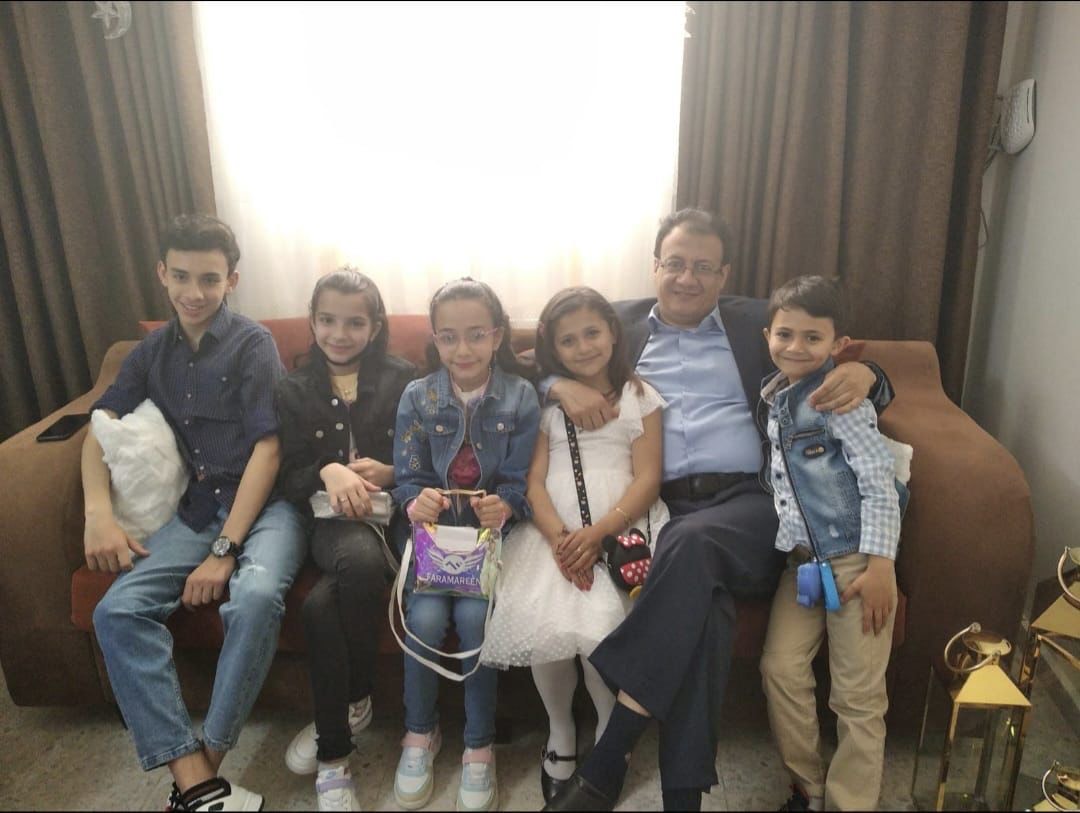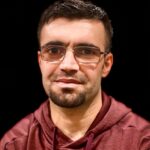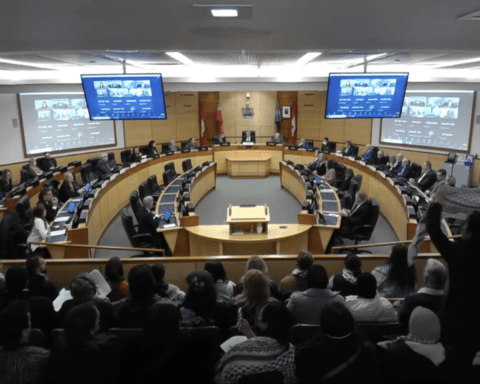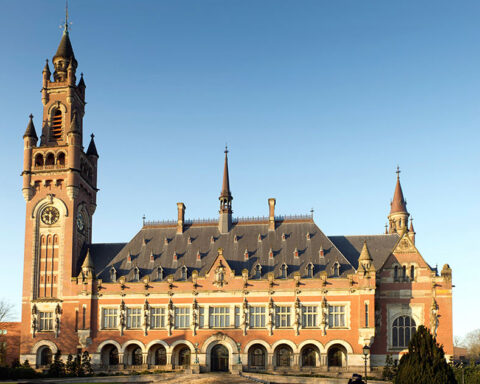Members of the Palestinian community are not satisfied with Canada’s 1,000-visa limit for Gaza refugees, urging the federal government to press for an end to attacks on Gaza rather than encouraging people to leave their disputed homeland.
Palestinians living in Canada contacted by New Canadian Media have contradictory feelings over the program. While they are happy with the thought of helping their families once they arrive in Canada, and they are grateful for the program, they think it has several deficiencies, a cap at just 1,000 people.
An analysis by New Canadian Media of government data indicates that Canada’s Gaza visa program is the most restrictive of its kind, lower than any comparable humanitarian pathway.
On Oct. 7, the Hamas group launched an unprecedented attack on Israel, killing about 1,200 people and taking about 250 to Gaza as hostages, according to Israeli data. In response, the Israeli government launched an air and ground offensive in Gaza, which has killed an estimated 26,000 Palestinians so far.
On Jan. 9, 2024, the Canadian government opened the doors for Palestinian Canadians to apply for a three-year temporary residency program for relatives in Gaza.
Once in Canada, program participants can apply for a fee-exempt study permit or open work permit.
According to the program, a Canadian citizen or permanent resident who applies on behalf of a relative in Gaza will receive a form from the federal government requesting additional personal information about the migrant applicant.
“There should be no cap”
Mohammed Alokshiya, who has been living in Vancouver since 2021, is working to bring his six siblings from Gaza to Canada.
While Alokshiya is happily looking forward to their arrival, he is also grieving the loss of a sister, her husband, and two children from an Israeli airstrike.
“I’m applying for visas for the others to save their lives,” Alokshiya said.
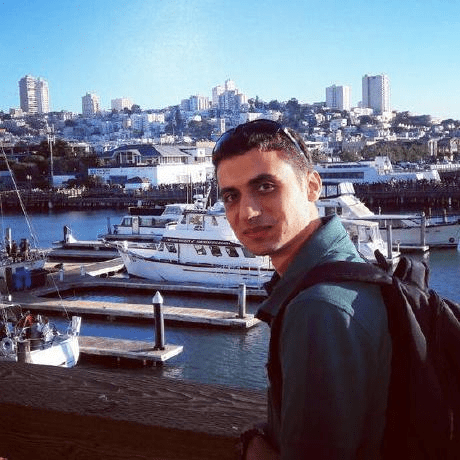
Alokshiya criticized the federal government for the deficiency of the program, stating, “This is a sponsorship program where people will pay all costs, including visa fees, for their relatives and will not cost the Canadian government a dime. There should be no cap,” Alokshiya said.
Alokshiya also mentioned that the government is imposing numerous restrictions on Palestinians, including a cap on the number of applicants. ”The applicants have to submit detailed applications, providing information about their social media accounts, phone numbers, emails, activities since the age of 16, and whether they have any scars or injuries,” he said.
Alokshiya said that Palestinians are dissatisfied with the 1,000 visa cap and many more people need to leave as the population of Gaza is more than two million. “It’s too little, especially when there are over 45,000 Canadians with Palestinian ancestors,” he said.
In the 2016 Canadian census, 8,210 people in Canada identified themselves as Palestinians born in the West Bank and Gaza Strip. In addition, Statistics Canada says there were 44,820 people in Canada of Palestinian ancestry in 2016, with the Canadian Arab Institute saying 28,480 were living in Ontario, 6,865 in Quebec and 4,880 in Alberta.
“Perception of discrimination”
Hazem Almasri, a 50-year-old Canadian Palestinian healthcare professional living in Kitchener, Ont., since 2013, is looking forward to reuniting with his family. However, he is saddened by the difficult situation his people are facing in Gaza.
Almasri has recently applied for 19 people including, his mother, two brothers, sister, and their children. While he is happy for the opportunity to bring them to Canada, he has concerns over what he perceives as discriminatory measures in the program.
“The limited cap for Palestinians contrasts with the absence of such restrictions in other conflict situations. The perception of discrimination adds to the emotional distress of the applicant and other Palestinian Canadians facing similar challenges,” Almasri said.
Jana Elkhatib, an artist and writer of Palestinian-Canadian descent, expressed disapproval of the federal government’s unequal treatment of refugees.
“They are not extending the same financial support to a meager cap of 1,000 Palestinian households as they had planned for the 650,000 visas issued to Ukrainian refugees, or the 170,000 of them who came here,” Elkhatib said. “The 23 members of my family relocating will require a very tight $100,000, covering just flight tickets, application fees, the paperwork, the waiting period in Egypt, and the first three months of living essentials in Canada.”
A program with similar features was launched for Ukrainians fleeing the country following the 2022 Russian invasion. It had a significantly higher limit, and the government has so far welcomed over 210,000 Ukrainian refugees.
Pleading for his family to leave
Since the war began, Almasri has pleaded with his family to leave the country. When Canada offered the program, it offered hope for his family through a potential move, however, his mother wants to stay in her home, surrounded by loved ones.
“The decision for Palestinians to stay in Gaza during this war is deeply rooted in the preservation of identity, unity, and a collective determination to endure and rebuild. It is a testament to their resilience and an expression of hope for a brighter tomorrow,” Hazem said.
Almasri himself didn’t choose to come to Canada and isn’t keen on his people leaving Gaza, given his own historical challenges. His father was forced to leave Gaza after the 1967 war and settled in Jordan. Almasri, born in 1974 in the United Arab Emirates, faced challenges when the Jordanian government insisted on relocation due to his Palestinian identity. Eventually, he secured a visa to move to Canada, and pursued studies in nursing.
Similar to Almasri, Alokshiya insists on trying to take his family members out of Gaza to save their lives. “They don’t want to leave their home, they will probably go back when the war is over,” Alokshiya said.
Similarly, Elkhatib told New Canadian Media about her conversation with her mother about her refusing to leave. “Despite the impossible decision we are asked to make at this moment, this is not leaving. This is for stronger returns,” Elkhatib said.
Almasri’s family wishes to stay, but safety is his main concern amid the ongoing crisis. His 72-year-old mother in Gaza requires healthcare and treatments. He says his sister lost her daughter in an Israeli bombardment, and a brother has lost his home, clinic and belongings.
Palestinians call on Canada for more support
Almasri is grateful for the program, but he calls on the federal government for diplomatic intervention in the crisis. He wants the government to review and reconsider the limitations imposed on family reunification from Gaza.
“Canada needs to advocate for diplomatic efforts to exert pressure on Israel through international channels, emphasizing the importance of respecting international law and facilitating safe passage for those in need,” Almasri said. “The government should collaborate with relevant authorities for the expedited evacuation of their relatives from the dire situation in Gaza.”
The National Council of Canadian Muslims is calling on Ottawa to remove the cap altogether, to allow any and all Palestinians who can live with their family in Canada to be able to leave the Gaza Strip.
Alokshiya believes that the federal government can do a lot to save Palestinian lives and exert pressure on the Israeli government to establish a ceasefire agreement. “Stop selling weapons to Israel, and treat Palestinians in a crisis like other nations by lifting the cap on how many people we can sponsor.”
Diary Marif is an Iraqi Kurdish journalist based in Vancouver, Canada. His writing has appeared in the Awene weekly, Livin, and on KNNC TV as a documentary researcher by the name Diary Khalid. Diary earned a master's degree in History from Pune University, in India, in 2013. He moved to Vancouver in 2017, where he has been focusing on nonfiction writing. He can be found on Twitter: @diary_khalid.

